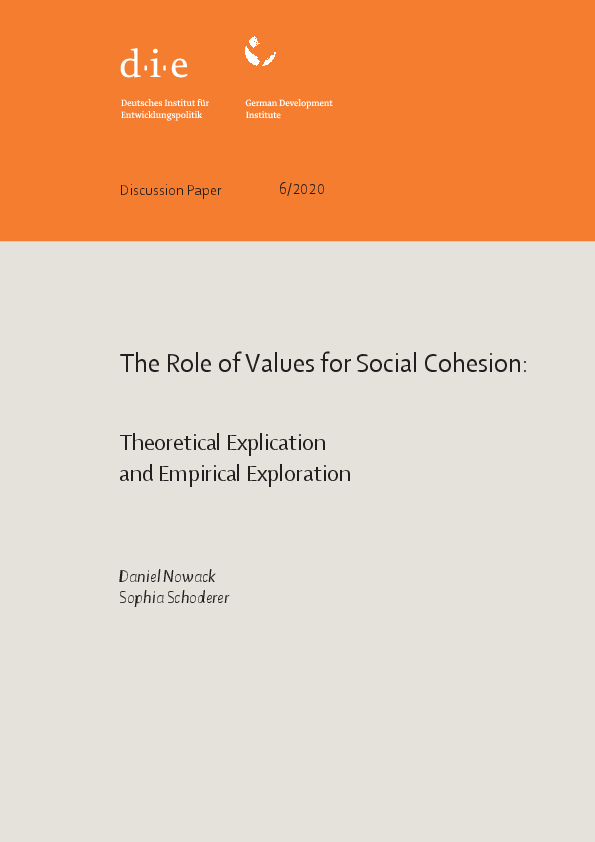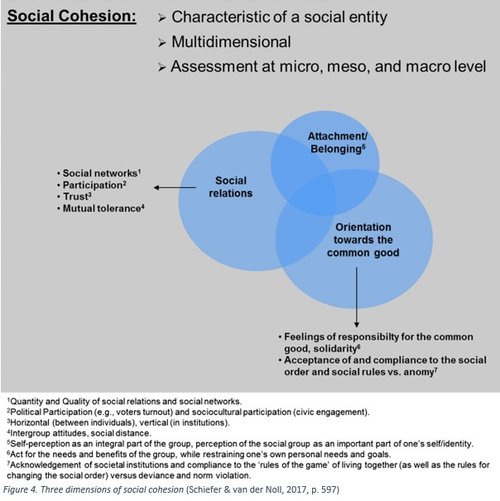The role of values for social cohesion: Theoretical explication and empirical exploration
Key facts
Shared values
Middle East and North Africa
South Asia
Latin America and Caribbean
Sub-Saharan Africa
East Asia and Pacific
North America
Political institutions & governance
Inequality
Summary
Shared values are deemed necessary as a solid foundation for social cohesion by commentators and observers in many countries. However, when examining what kind of values this is based on, answers often come down to platitudes and national clichés. This discussion paper offers some clarification through both a theoretical explication and an empirical exploration concerning the general role of values for social cohesion.
Values are notions about desirable, trans-situational end-states and behaviours. They fall into two categories, individual and societal values. We provide a critical discussion of the most prominent conceptualisations and their operationalisation in the social sciences.
Values affect social cohesion in three possible pathways: First, when they are shared; second, when they promote behaviour per se conducive to social cohesion and third, through their effect on policy choice and institutional design. We review evidence provided by the research literature for each of these pathways.
We further explore the third pathway by deriving from the research literature the conjecture that a cultural value emphasis on egalitarianism makes a universalistic scope of welfare institutions more likely, which in turn increases social and political trust. We first examine this conjecture with a series of regression models, and then run a mediation analysis. The results show that (1.) egalitarian values are moderately strongly and positively linked to universalistic welfare institutions, but that (2.) welfare institutions mediate the association of egalitarian values with social trust only to a small extent and that (3.) more universalistic welfare institutions counteract a negative association between egalitarian values and institutional trust.




